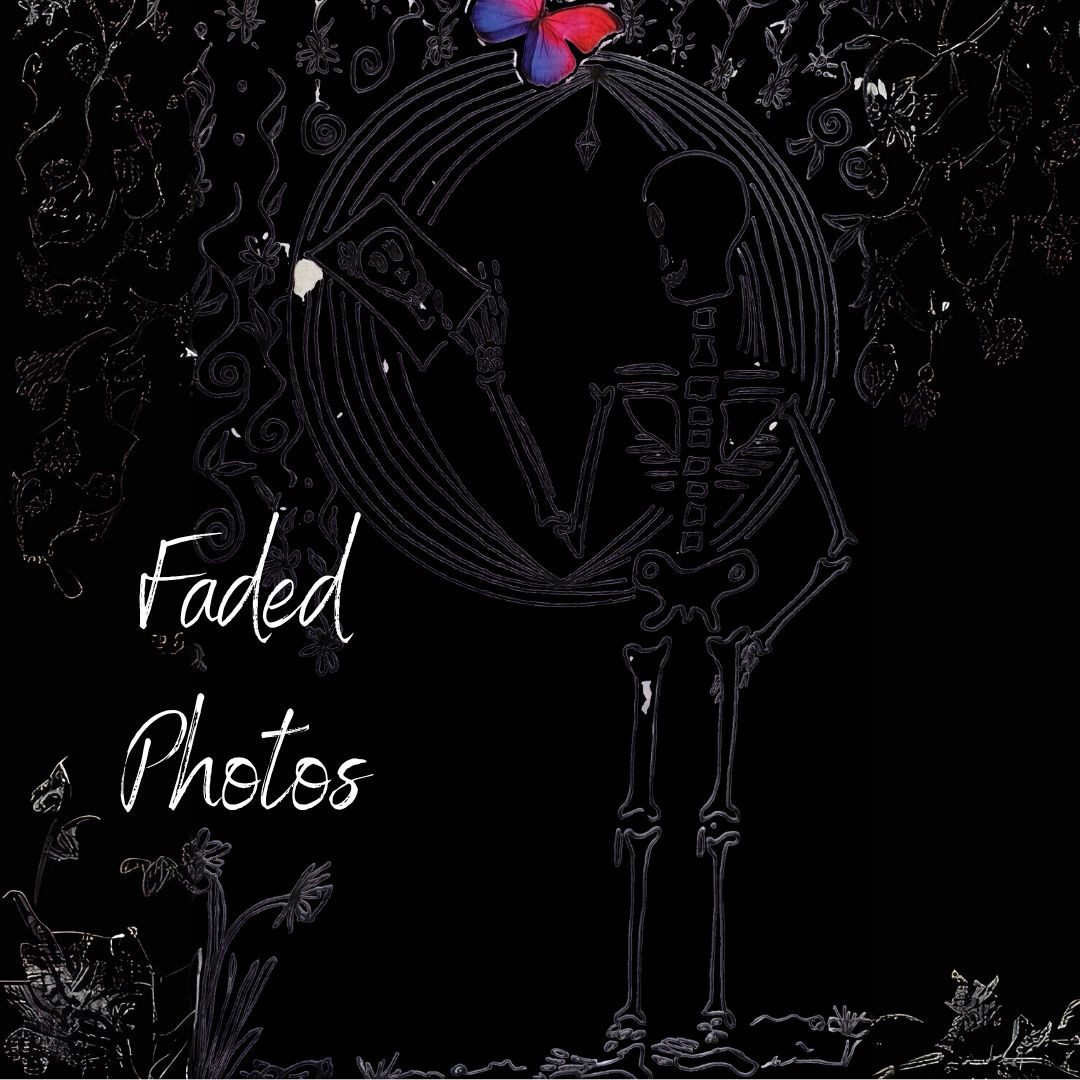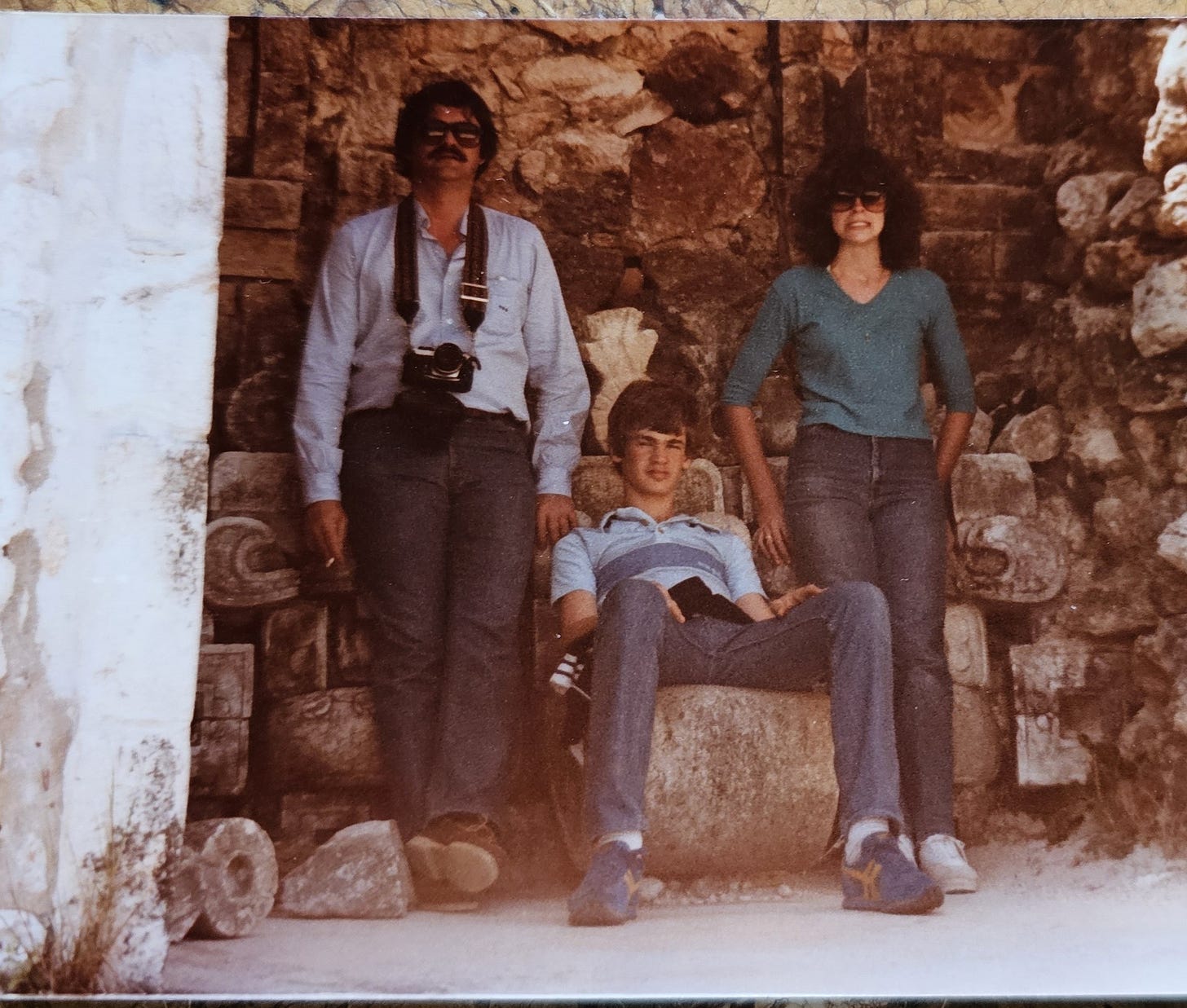Faded Photos
Is it possible to pull fragile memories from the archives and deposit that feeling into your book? To Write what we know? (Or what we kinda remember. . .)

Remember when Dumbledore shared his memories with Harry Potter in The Half-Blood Prince? In case you need a refresher, Dumbledore used his wand to pull specific memories out of his head. He then deposited the ethereal threads into a small bottle, or sometimes the Pensieve, which was a bowl with some cloudy stuff drifting around in it. When Harry dipped his face into the bowl, he was able to observe Dumbledore’s memories. Much like watching a movie. I often wonder if having a device like the Pensieve —or even the ability to revisit events in our past—would be a blessing or a curse.
While writing my upcoming book, Forewarned, I took nonspecific events from my childhood memories and tried to give them context. We spent summers at a lake house in Northern Indiana. My parents divorced when I was eight. At the lake, adults partied hard—usually once the kids went to bed, but not always. After all, it was the 70’s. And we kids were loosely supervised, or not supervised at all. One summer a kid partying at the house next door died in a tragic boating accident. I was swimming off the end of our pier the night it happened.
All these things happened when I was a kid. And I don’t have one of those eidetic memories where everything is stored sequentially in perfect order. It’s more like someone scattered a mix of old photos onto the floor. They don’t have dates, reference points or explanations. “Scattered pictures,” Barbara Streisand sang. So true. The only thing left is the feeling they evoked.

But that’s just it. The feeling. And I believe that is the heart of the memory.
Sometimes memories are clear as a sunny day. All bright and shiny, we recall the details and the events. Now that I’m getting older that’s what yesterday looks like. Not so much last week. When you think back, you know what was said and feel the emotions. Other times we trick ourselves. Changing a detail here and there might fit a personal narrative. Right or wrong, the sensation or impression remains.
Did you ever play that telephone tag game? One person tells a story and passes it along to the next person. The next person retells the story and shares it with another. You go around the room this way until the last person retells the story to the originator. It’s funny how the details have changed.
One thing investigators all know is that each eye witness to a single event sees something different. And often a witness’s story will change over time. A blue hat becomes a brown one, or no hat at all. The guy in the back of the room was just watching the show. But later, that guy was furtive. Suspicious.
Memories are fragile, smokey, and ethereal, like the foggy stuff in the bottom of the Pensieve.
I found a great way to discover inspiration and new writing prompts: go through some of those old photo albums. For you kids, those are thick heavy books with clear plastic shields for your printed-on-Kodak-paper photographs. Usually I had no idea what the photos in my camera would turn out like. Sometimes I didn’t even remember what was on the roll before I had it developed. Every now and then, if I got lucky, I’d get a good shot. Surprise! Thank heavens for digital photos (delete, delete, delete…)
Earlier this year we took a trip to Puerta Vallarta. I’d been there long, long before, when I was in high school. My dad rented a house for a couple months. (Yeah, that’s another story…) I didn’t remember where the house was, only that it overlooked the bay. And what I did recall—sunburn, and fresh guacamole, walking on a beach littered with seaweed and stones, the adults drinking Margaritas —was not very clear.
This year when we arrived, I tried to recall anything of the town that was familiar. So much had obviously changed and I expected that. It had been decades since I was there. But this January when I looked out the window of our time share, I saw the famous rock formations, Las Tres Hermanas, and remembered them vividly. Was the house my dad rented close to them? Did we swim at a beach near them? I couldn’t recall.
Strangely enough, my brother reached out shortly after our trip. We don’t often speak, so when he texted that he had photos to share that belonged to my dad I was thrilled. The package arrived a week or so later and I was blown away. Mostly, they were photos of our years-ago trip to Mexico. I’d forgotten we’d gone to Mexico City on that trip, saw a bull fight, and visited the ruins at Tenochtitlan. And we’d taken a fishing boat out to Las Tres Hermanas. That was why I recalled them so vividly, as if they’d been an important part of the trip. Because they were! Photographic verification is wonderful if you’re lucky enough to have those records.

There were no photos of the house Dad rented. But on the last day we were in Puerta Vallarta (this year) my husband and I took a bus to the Botanic Gardens. On our way through the southern part of PV, I spotted a road carved into the mountains with stone walls supporting the sides of a drive and bougainvillea all along the border. Near Las Tres Hermanas, it wound up the mountain into an old neighborhood where beautiful homes overlooked the ocean. I like to think that’s where the house was. It certainly felt familiar.
As writers, we strive to evoke emotions. We want you to care about our protagonist, first. Then we sprinkle a little apprehension, excitement, elation, disparity, longing, hilarity, and love. Somewhere along the line we need to land on satisfaction. Those notions seem easier to summon than specific memories. And for me as a suspense writer, there’s something about that unease, that sense that something bad will happen that’s important for me to write about. It’s that sense of the next horror story just around the corner, as my mom used to say.
That sense of apprehension and discomfort was a big part of my life growing up. (See photo above.) I don’t know why, and there are no photos of it, but I’m still writing and trying to make sense of it.
Look for Forewarned on August 1st, 2025.

Wishing she could escape the shadow of her fractured family and her mother’s too-soon rebound relationship, Daphne reluctantly heads to the family lake house in Northern Indiana. The tension with her mother is thick—especially when Daphne is the only one who knows her mom's boyfriend is hiding a dangerous secret. But Daphne’s burden is far heavier than family drama. She harbors an unsettling gift—an ability to know the hidden truths of anyone she touches. Read more here.
Tracey S. Phillips has played the piano since age three. She considers herself a serial artist who is an avid gardener, musician, piano teacher, artist, and author. She writes psychological suspense and romantic suspense. She lives in Wisconsin with her husband and like some of her characters, she occasionally speaks with spirits on the other side.







Nice piece. You are so right about fractured memories. I think most writers use the past as a springboard for their imaginations. I can't remember incidents--particularly the visual details--well enough to write a memoir. But I can make up things around the emotional heart of what I remember.
So interesting -- the process of trying to pull at the threads of memory and the emotions involved. I have a lot of these little snippets from childhood that are elusive, but quite a few memories that are very vivid. The conversation is always interesting ... and when others say they don't remember vast swaths of their childhoods, I was always surprised by that. Clearly, you remember a lot and it shows ... I loved the evocative way you brought the 1970s alive for me again in "Forewarned."